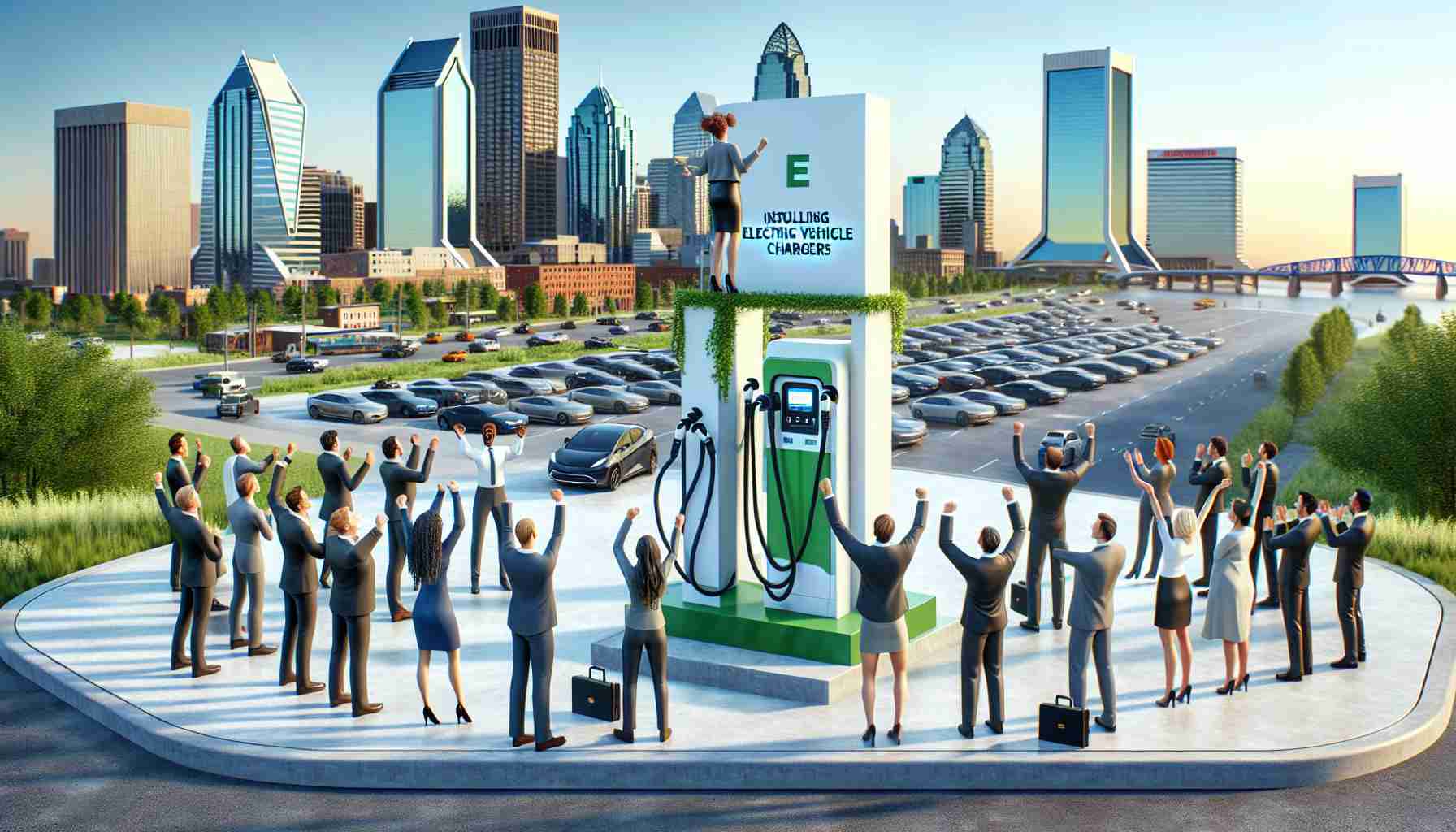Jacksonville’s Electric Future Takes a Step Forward
In an exciting development for electric vehicle (EV) enthusiasts, Jacksonville, Florida, is set to enhance its EV infrastructure significantly. Recently, the U.S. Department of Transportation announced a substantial allocation as part of its initiative to promote sustainable transportation in the region.
The City of Jacksonville, along with Florida State College of Jacksonville, is slated to receive a generous $2.8 million from a total of $39.7 million in federal grants aimed at expanding EV charging and alternative fueling facilities across Florida. This funding will facilitate the installation of 100 new EV chargers in accessible public locations and educational campuses.
This initiative is part of a larger nationwide effort that includes 49 projects targeting the deployment of over 11,500 charging ports and fueling infrastructure for hydrogen and natural gas across 27 states, as outlined by the Federal Highway Administration (FHWA).
The funding aligns with the Bipartisan Infrastructure Law, which prioritizes the development of zero-emission refueling infrastructure, contributing to a broader investment of up to $108 billion for public transportation improvements nationwide. The Jacksonville project specifically aims to bridge the charging gap in underserved communities while also promoting greenhouse gas reduction initiatives.
As the landscape of public EV charging evolves, the push for more accessible charging options is vital in supporting the growing number of electric vehicles on the road. With over 206,000 public charging stations currently available, the U.S. is set on a path to reach 500,000 chargers by 2030, reflecting a commitment to combating climate change.
Jacksonville’s Electric Vehicle Initiative: Paving the Way for a Greener Future
Introduction
Jacksonville, Florida, is making significant strides in its electric vehicle (EV) infrastructure, positioning itself as a leader in sustainable transportation within the state. With the recent announcement of a substantial federal grant, the city is set to expand its EV charging network, enhancing accessibility and promoting greener alternatives for residents.
Funding and Goals
The U.S. Department of Transportation has allocated $2.8 million to the City of Jacksonville and Florida State College of Jacksonville as part of a broader initiative to augment EV charging and alternative fueling facilities throughout Florida. This funding is a crucial component of the federal push, which includes a total of $39.7 million designated for similar projects across the state.
This initiative not only aims to install 100 new EV chargers in publicly accessible locations and educational campuses but also seeks to target underserved communities, thereby promoting equitable access to EV charging options.
National Context
Jacksonville’s efforts are part of a larger national movement that encompasses 49 projects targeted at deploying over 11,500 charging ports and fueling infrastructure for hydrogen and natural gas across 27 states. This broader initiative resonates with the objectives laid out in the Bipartisan Infrastructure Law, which seeks to invest up to $108 billion in public transportation improvements.
Sustainability and Environmental Impact
This initiative aligns with national goals for greenhouse gas reduction and efforts to mitigate climate change. By expanding the EV charging network, Jacksonville contributes to the national aim of increasing the number of electric vehicles on the road, helping to establish a more sustainable and environmentally friendly transportation landscape.
Trends in EV Infrastructure
As of now, more than 206,000 public charging stations are available throughout the U.S., with projections indicating a target of 500,000 chargers by 2030. This ambitious goal reflects a commitment to creating a robust network of charging stations that can accommodate the anticipated growth in EV usage.
Insights on EV Market Expansion
The increasing popularity of electric vehicles has led manufacturers to ramp up production and innovation, making EVs more accessible to a wider audience. Jacksonville’s focus on enhancing charging infrastructure is a critical component in supporting this growth. Communities with ample charging facilities are more likely to adopt EVs, reducing overall carbon emissions and contributing to a healthier environment.
Conclusion
With Jacksonville’s imminent expansion of its EV charging network, the city is poised to not only enhance local accessibility to electric vehicle charging but also play a pivotal role in the nationwide transition to sustainable transportation. Such initiatives signify a significant step toward reducing greenhouse gas emissions and fostering a greener future for all.
For more on sustainable transportation initiatives in Florida, visit Florida Department of Transportation.


















